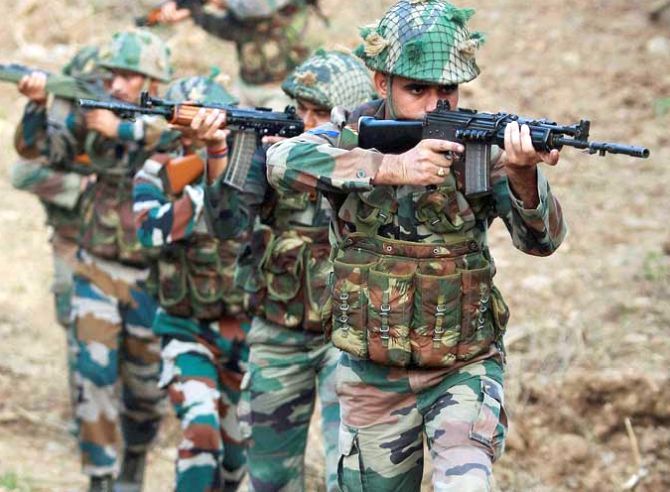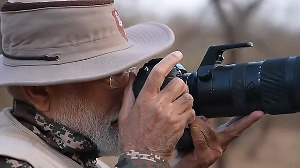Army sources indicate the first Integrated Battle Groups would come up in the plains of Jammu, Punjab, and Rajasthan, providing New Delhi instruments of retaliation in the event of grave provocation by Pakistan, such as a 26/11-style terrorist attack.
Ajai Shukla reports.

New Indian Army structures geared towards sudden and swift offensives into enemy territory by integrated battle groups (IBGs) will be war-gamed next month, and then physically validated in exercises on the ground in May, announced Army Chief General Bipin Rawat.
The proposed IBGs are at the core of an offensive doctrine called Cold Start which involves launching an offensive rapidly, and on multiple independent thrust lines, leaving the enemy with neither the time nor the defensive resources to block those multiple thrusts.
Traditionally, different army components like infantry, armour, artillery, engineers, signals, and logistics stay and train separately in peace locations, only 'marrying up' for combat when they deploy in the field.
Since marrying up takes time, an IBG integrates all these components in peacetime itself, keeping them ready to be thrown into combat without delay.
The Cold Start doctrine was long denied by Indian policymakers until General Rawat publicly endorsed it at his first Army Day press conference on January 13, 2017.
Now, on the same occasion two years on, General Rawat announced the first IBGs would be tested this summer.
"We will carry out war games in February/March, and in May we will exercise the IBGs. Hopefully, after that, we will go to the government and take their sanction (to restructure traditional divisions into permanent IBGs)," said General Rawat.
General Rawat clarified that only part of the army, located in areas where IBGs would need to be rapidly launched into battle, would be restructured into permanent battle groups.
Army sources indicate the first IBGs would come up in the plains of Jammu, Punjab, and Rajasthan, providing New Delhi instruments of retaliation in the event of grave provocation by Pakistan, such as a 26/11-style terrorist attack.
In addition, one of the army's three mechanised strike corps will be restructured into a rapid reaction Sabre Corps, capable of immediate launch into Pakistan when required.
For retaliatory strikes in the mountains, against either Pakistan or China, the two divisions of the newly created Mountain Strike Corps would also be converted into IBGs.
Traditionally, a division (with about 20,000 soldiers) has been the smallest formation that has all the components -- infantry, armour, artillery, engineers, signals and logistics -- needed to fight a war.
The battle group concept involves distributing these resources between the three brigades of a division, making each brigade capable of operating independently, as an IBG.
The creation of IBGs is part of an ambitious four-point reorganisation of the army that General Rawat has launched.
The other dimensions include reorganising army headquarters, a cadre review of officers, and re-evaluating manpower structures to bring down the strength of the army.












 © 2025
© 2025